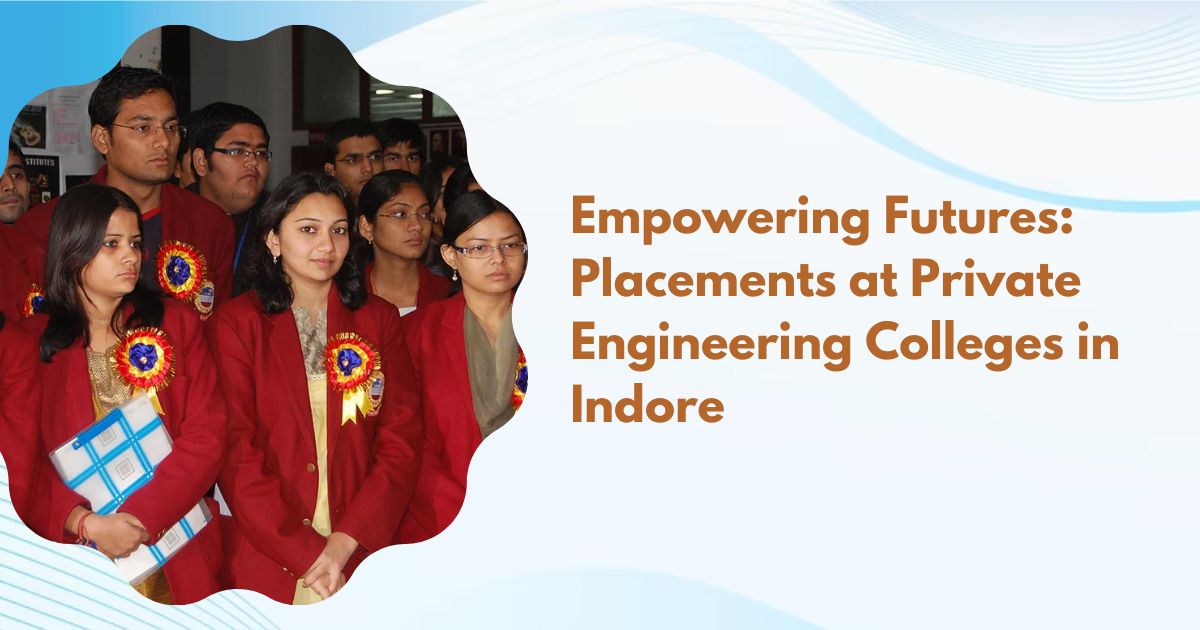Fintech & Key Investment Conference
Far far away, behind the word mountains, far from the countries Vokalia and Consonantia, there live the blind texts. Separated they live in...
3 min read
 Admin
:
August 29, 2023
Admin
:
August 29, 2023

In an era marked by rapid urbanization and technological advancements, the role of civil engineers in shaping the infrastructure landscape has never been more crucial.
Sri Aurobindo Institute of Technology recognizes the pivotal role that civil engineers play in building the future, and their contribution to infrastructure development cannot be overstated. From towering skyscrapers to intricate transportation networks, these professionals lay the foundation for progress and sustainable growth.
The Backbone of Development
Infrastructure development forms the backbone of any thriving society. It encompasses a wide range of critical systems, including transportation, energy, water supply, waste management, and telecommunications. These systems are essential for economic growth, public health, and overall well-being. Civil engineers are the architects of this backbone, designing, planning, and supervising the construction and maintenance of infrastructure projects that impact millions of lives.
Designing for Sustainability
In the modern world, the concept of sustainability has gained paramount importance. Civil engineers are at the forefront of creating infrastructure that not only meets the needs of the present but also considers the needs of future generations. This involves using eco-friendly materials, optimizing energy usage, and developing systems that can withstand the challenges posed by climate change. Sri Aurobindo Institute of Technology understands the significance of educating future civil engineers about sustainable practices, ensuring that they are equipped to address the environmental concerns of our time.
Innovation and Technological Advancements
The field of civil engineering has undergone a significant transformation with the advent of advanced technologies. The traditional image of engineers in hardhats and blueprints has evolved into one where computer simulations, virtual reality, and artificial intelligence play a vital role. The faculty at Sri Aurobindo Institute of Technology recognizes the importance of keeping up with these advancements and trains students to be proficient in using cutting-edge software and technologies to design, analyze, and manage complex infrastructure projects.
Transportation Networks of Tomorrow
Efficient transportation systems are the arteries of urban connectivity. Civil engineers are responsible for designing roadways, bridges, tunnels, and public transportation networks that facilitate the movement of people and goods. In the digital age, the emphasis has shifted towards creating smart transportation systems that leverage real-time data and analytics to alleviate traffic congestion and enhance safety. The education imparted at Sri Aurobindo Institute of Technology equips students to engage with these evolving challenges and contribute to the creation of intelligent transportation systems.
Urban Planning and Smart Cities
The world is witnessing an unprecedented wave of urbanization, with millions of people flocking to cities in search of better opportunities. This poses unique challenges for infrastructure development, requiring careful urban planning to accommodate the growing population while maintaining a high quality of life.
Civil engineers collaborate with urban planners, architects, and policymakers to design smart cities that incorporate digital technologies to enhance efficiency, sustainability, and citizen engagement. Sri Aurobindo Institute of Technology fosters interdisciplinary learning, ensuring that its civil engineering graduates are well-prepared to work in such collaborative environments.
Resilience in the Face of Challenges
Natural disasters, such as earthquakes, floods, and hurricanes, can wreak havoc on infrastructure. Civil engineers play a critical role in designing structures that can withstand these forces of nature and minimize damage to human lives and property. By integrating resilient design principles into their projects, civil engineers contribute to the safety and well-being of communities.
The curriculum at Sri Aurobindo Institute of Technology emphasizes disaster preparedness and recovery strategies, enabling students to be at the forefront of building resilient infrastructure.
Global Outreach and Impact
Infrastructure development is not confined by national borders; it's a global endeavour. Civil engineers have the potential to make a lasting impact on communities around the world, whether by providing access to clean water, constructing schools, or designing sustainable housing solutions.
Sri Aurobindo Institute of Technology fosters a global perspective in its students, encouraging them to engage in international projects and collaborations. This prepares graduates to address global challenges and contribute positively to the global infrastructure landscape.
Conclusion
In the grand tapestry of progress, civil engineers are the weavers, crafting the threads of infrastructure that connect societies and enable growth. Sri Aurobindo Institute of Technology recognizes the immense responsibility that comes with this role and strives to provide its students with the knowledge, skills, and ethical foundation required to excel in the field.
As we stand on the cusp of an era marked by unprecedented challenges and opportunities, civil engineers from Sri Aurobindo Institute of Technology are poised to be the vanguards of change, shaping the future of infrastructure development with innovation, sustainability, and resilience.

Far far away, behind the word mountains, far from the countries Vokalia and Consonantia, there live the blind texts. Separated they live in...

In today's rapidly evolving world, innovation is at the heart of technological advancements. Electronics and Communication Engineering (ECE) stands...

Private engineering colleges in Indore have been consistently making their mark on the educational landscape of India. Over the years, these...